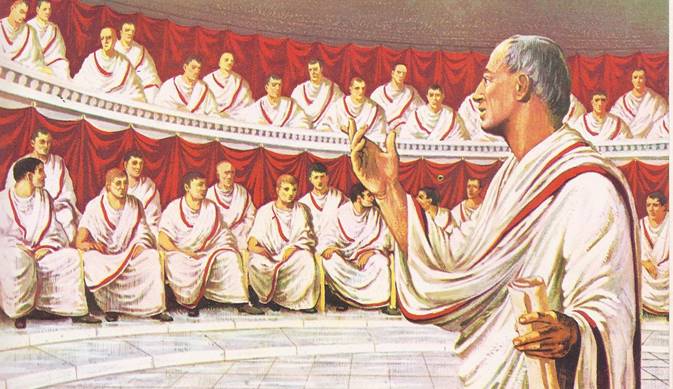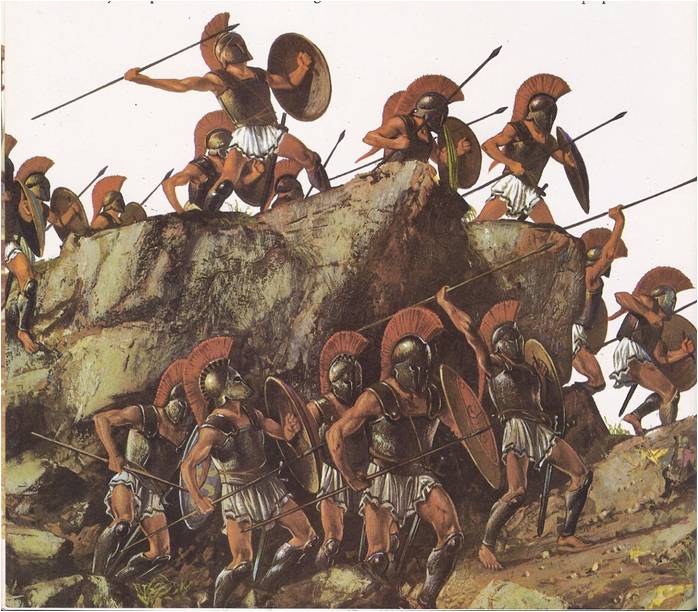If you had been a citizen of the ancient Greek city of Athens on a fine spring morning in 409 B.C., you would have gathered with thousands of your fellow citizens on a hillside inside the city. You would then have listened carefully to the discussion of various matters of business, conducted by the chairman and secretary of the meeting from a platform below and facing you. You would have seen an Athenian citizen thread his way from the hillside to this platform. This was a sure sign that he had a proposal to make to the voters. The citizen …
Read More »Tag Archives: Pericles
The City Divided 130 B. C. – 70 B. C.
MARCUS TULLIUS CICERO, a young statesman known for his dramatic speeches, stood before a panel of judges in a courtroom in Rome. He stared at them angrily. For fifty days he had travelled through Sicily, collecting facts about the crimes committed by Caius Verres, the man who was on trial. Now the judges had told him that there would not be time to listen to his evidence. Cicero knew that the judges had been bribed. For it was no ordinary criminal that he meant to send to prison or to death. Caius Verres was an aristocrat and a senator and …
Read More »Greece and the World 323 B. C. – 250 B. C.
In the last years of the fourth century B. C., Greek citizens going about their business in the stoas or the shops sometimes stopped and wondered what was wrong. Everything seems strange. They themselves had not changed and their cities looked the same as before, but the world around them was so different that they could hardly recognize themselves. The little poleis on the mainland looked out at an enormous empire, which stretched across Asia and Egypt. They shipped their olive oil and pottery across the Mediterranean. Their corn came from fields beside the Black Sea and the Nile. Merchants …
Read More »Greek Against Greek 430 B. C. – 404 B. C.
About 425 B. C., a lonely man, in a country that was not his own, sat down to write the story of a war that had begun six years before. Thucydides, an Athenian, had fought in the war’s first battles. He had been a general, in command of thousands of his city’s troops. Then he was ordered to go to the aid of another commander whose men were outnumbered. When he arrived, the battle had already been fought and lost. It was not his fault but the people of Athens were too anxious about the war to consider that. They …
Read More »


